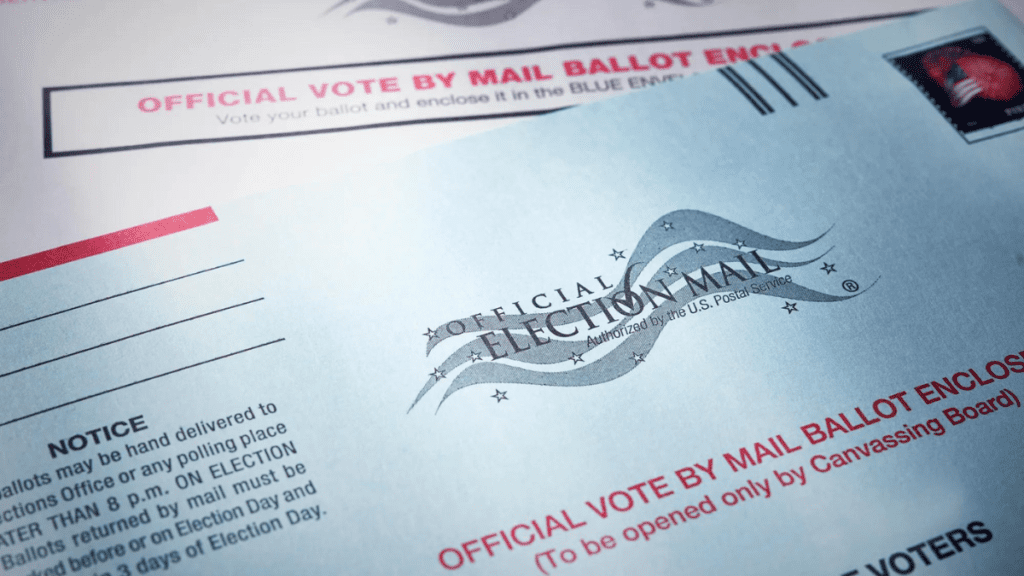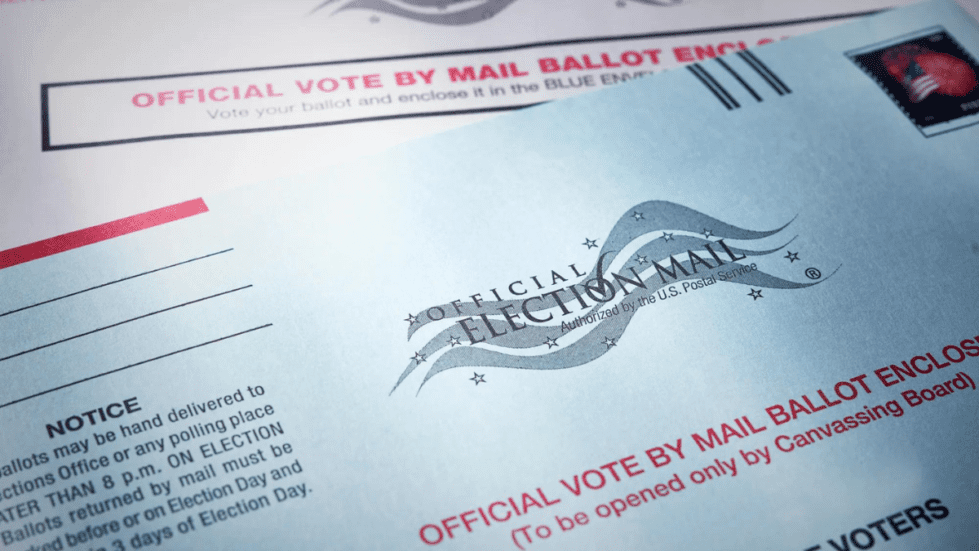

A Chancery Court judge has ruled Delaware’s new mail-in voting provision unconstitutional.
In an 87-page memorandum opinion issued Wednesday afternoon, Vice Chancellor Nathan Cook said allowing mail-in voting in the Nov. 8 general election “will result in the dilution of constitutional votes with unconstitutional votes.”
Cook issued an injunction that will prevent the Department of Elections from accepting applications for no-excuse absentee ballots.
“…if I were to not enjoin the Vote-by-Mail Statute, then the courts would be faced with the impossible task of ‘unscrambling the eggs’ of an election undermined by unconstitutional votes,” Cook wrote. “Given these considerations, Plaintiffs will suffer irreparable injury if the Vote-by-Mail Statute is not enjoined and doing so is necessary in the interests of justice.”
“…Furthermore, the fact that votes will be cast under this unconstitutional law means that the election will not be conducted in strict accordance with our Constitution,” he wrote. ” As Plaintiffs note, it would be ‘virtually impossible’ to unwind the election.”
Cook said that although Delawareans have an “indisputably strong interest” in voting for their chosen slate of candidates, they have an equally strong interest in the election being held in compliance with constitutional constraints.
Delaware has a strong policy in favor of its citizens “robustly exercising” their right to vote, Cook said, and he acknowledged that voters may be unable to exercise their right to vote for numerous reasons, including because they are working on election day or suffer resource constraints.
“My thoughts on the policy underlying the Vote-by-Mail Statute, however, are fairly irrelevant,” he wrote. “Delaware precedent — at least as it stands today — requires me to issue an injunction.”
The ruling has no effect on Tuesday’s primary election. The Department of Elections, which declined to comment Wednesday, is all but certain to appeal the decision to the Supreme Court of Delaware.
In the same opinion, Cook upheld the state’s new same-day voter registration law.
Delaware Republican Party chairwoman Jane Brady and Republican candidate for attorney general Julianne Murray are behind the suits.
Brady and Murray are representing the plaintiffs in their capacities as private attorneys — not on behalf of the Republican Party of Delaware.
Election Commissioner Anthony Albence and the Department of Elections are named as defendants in the lawsuits. Both are being represented by Zi-Xiang Shen, a deputy attorney general with the Delaware Department of Justice.
Murray is representing three Delaware voters: Ayonne “Nick” Miles, Paul Falkowski and Nancy Smith.
According to Murray, one of them is a Democrat, one is a Republican and the other is unaffiliated. One is from New Castle County, one is from Kent and the other is from Sussex.
Brady is representing two plaintiffs: Michael Higgin and Michael Mennella. Higgin is a candidate for state representative and Mennella has worked as a poll worker during at least eight election cycles.
The two suits were heard together.
“I am delighted with the decision,” Murray said Wednesday evening. “The Vice Chancellor took great care in reviewing Delaware’s history as well as Delaware’s case law in coming to his conclusion. I obviously thought that the statute was unconstitutional but to have the Court agree is very validating.”
Murray said that during floor debates in the General Assembly, despite testimony that the statute is unconstitutional, members said they would pass the law and let it be sorted out in the courts.
“Well it has now been sorted out,” she said.
Indeed, while the bill was being considered in the House of Representatives, Speaker of the House Pete Schwartzkopf, D-Rehoboth, ended the debate between Republican and Democratic lawmakers.
“I don’t know whether it’s constitutional or not constitutional, and neither do you guys or anybody else in here,” Schwartzkopf said. “The best way to get this thing done is hear this bill, move forward, and let a challenge go to the courts and let them decide it.”
Brady called Wednesday’s ruling a “victory for the law.”
“To change the provisions in our State Constitution requires that the same new law be passed by the General Assembly over two consecutive legislative sessions with a supermajority,” Brady said. “When the Democrats could not get the votes to do that, they attempted to change the law by passing a statute in the General Assembly in one session with a simple majority.”
“This is the first step to protect Delaware elections from laws that may undermine our confidence in election results and threaten to introduce greater opportunities for fraud into our elections.”
To read the opinion in its entirety, click here.
Background
Senate Bill 320 created an opt-in vote-by-mail system wherein voters have to request a ballot before one is sent.
In June 2021, Republicans in the General Assembly effectively stopped the passage of a different bill that would have made no-excuse absentee voting a permanent fixture in Delaware’s elections.
House Bill 75, sponsored by Rep. David Bentz, D-Christiana, would have allowed Delaware voters to request mail-in ballots without providing an explanation.
But the bill, which sought to amend the Delaware Constitution, failed to receive the required two-thirds majority needed in the House of Representatives.
Constitutional amendments are also required to be passed separately during two consecutive legislative sessions.
Twelve Republicans voted in favor of the bill in 2019 during the 150th General Assembly. But in 2021, not one Republican voted in favor of the proposal.
The Constitution requires voters to provide justification before receiving an absentee ballot.
Excuses include being away from the state for work, college, public service, sickness, physical disability, military service, or religious tenets in conflict with in-person voting.
RELATED: Senate OKs mail-in voting despite claims it violates Constitution
Supporters of Senate Bill 320 said vote-by-mail is not the same as absentee voting, and the Constitution grants the General Assembly the authority to “prescribe the means, methods and instruments of voting so as best to secure secrecy and the independence of the voter, preserve the freedom and purity of elections and prevent fraud, corruption and intimidation…”
Opponents said that’s a distinction without a difference and when lawmakers failed to amend the Constitution, they developed a workaround to circumvent the law: Senate Bill 320.
Legal precedent
Pennsylvania’s Supreme Court in early August upheld a nearly identical mail-in voting law that passed the legislature there with bipartisan support but was later challenged by Republican elected officials.
Similarly to in Delaware, the plaintiffs in that case said the legislature did not have the power under the commonwealth’s Constitution to allow voters to cast their ballots through the mail without an excuse.
They argued that permitting no-excuse mail-in voting required an amendment to the Constitution which would have been resolved through a referendum.
Brady said Pennsylvania’s “constitutional language, the court’s history and terminology about which the opinion was centered, all differ from Delaware’s.”
This is a breaking news story. Check back for updates.
Charlie Megginson covers government and politics for Town Square LIVE News. Reach him at (302) 344-8293 or [email protected]. Follow him on Twitter @cmegginson4.
Share this Post



